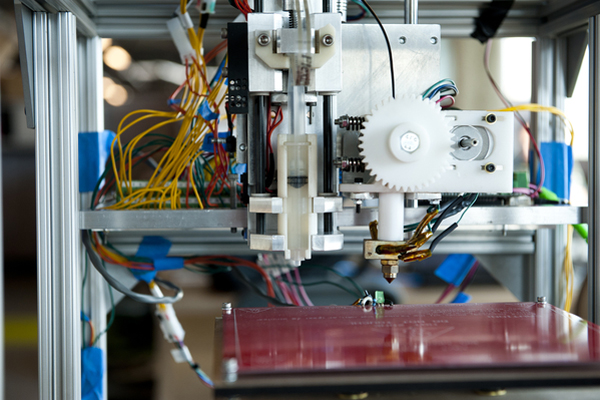Ask the entrepreneur: 3Qs with 3-Spark

Pitching your business to U.S. Sen. Elizabeth Warren is no easy feat, but it helps when you’ve practiced your elevator pitch a number of times beforehand, says Northeastern alumnus and researcher Richard Ranky, co-founder and CEO of 3-Spark, LLC. Together with Distinguished Professor of Engineering Constantinos Mavroidis, academic specialist Mark Sivak, and doctoral student Lexi Carver, Ranky spun off 3-Spark from Northeastern’s Biomedical Mechatronics Laboratory. The company specializes in 3-D printing technologies for the education and consumer markets and was accepted into the 2013 MassChallenge program. Ranky offered to share his experience starting 3-Spark and how the university helped turn his doctoral dissertation into a business.
What made you start your business, and how did you get to where you are now?
I’ve always loved building things. The technology behind 3-D printing is fascinating and elegant. While I don’t see it replacing traditional manufacturing methods, it is a powerful tool that future engineers can take advantage of. By creating 3-Spark with our embedded electronics technology, I felt that I could help future generations of engineers and designers create better products and designs.
What were the biggest lessons you learned while trying to build your business?
I learned how important it is to have both a chief executive officer and a chief technology officer, and how these two should work together. In a small team, it’s challenging for one person to take on both roles, and sometimes the priorities are even opposed between the two. Many jobs of the CTO are very narrowly focused, while the CEO needs to be acutely aware of the bigger picture and all business impacts on the company, and strategically make all these factors and resources work together seamlessly.
How has Northeastern helped you along the way?
I can’t imagine having come this far without all the people and resources at Northeastern. The Center for Research Innovation provided us with seed-funding through the Catalyst grant program, and CRI staff has worked closely with us to keep our intellectual property portfolio strong. Additionally, the College of Engineering and Biomedical Mechatronics Lab have donated in kind support to design and build in their labs, while Health Science Entrepreneurs and IDEA have supplied us with mentorship and support to help us found the company and participate in MassChallenge. We’ve also secured our legal and accounting services though an IDEA support grant.






